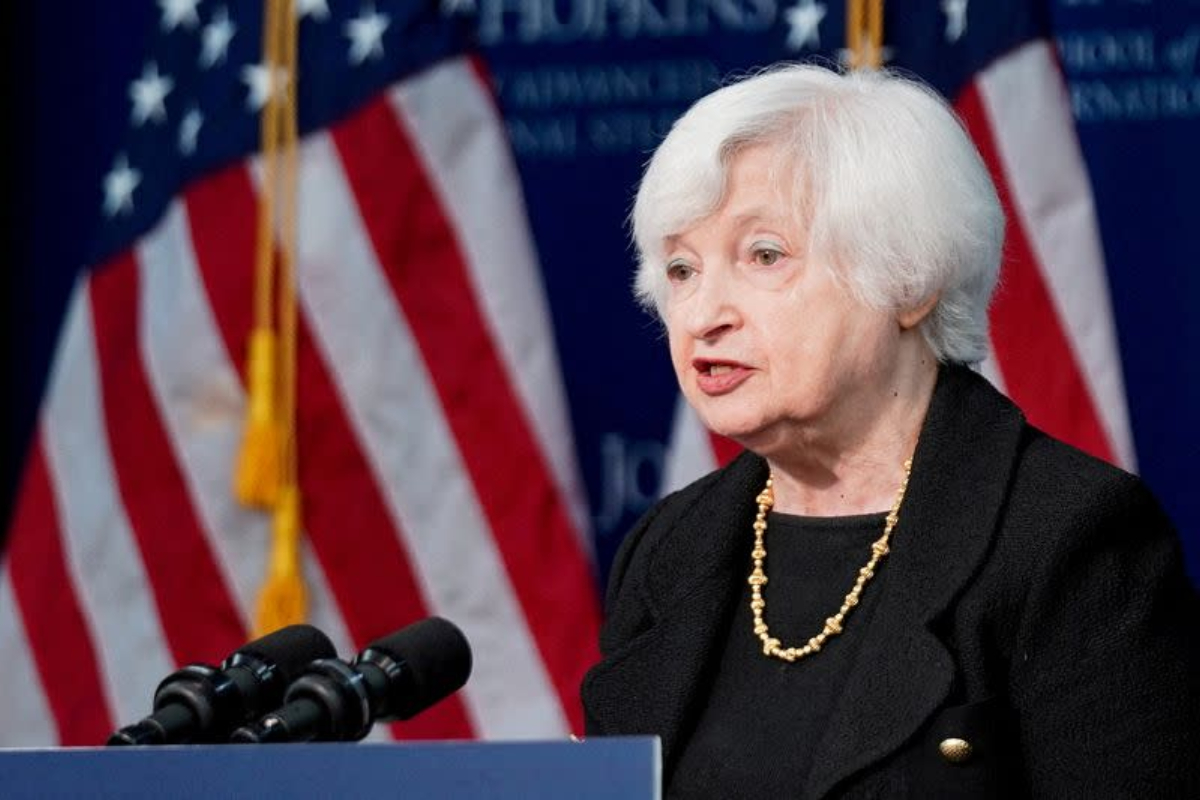U.S. Treasury Secretary Janet Yellen landed in Beijing on Thursday, commencing a four-day visit aimed at improving relations between the world’s two largest economies, although expectations are modest from both sides.
Yellen received a low-profile welcome from a Chinese finance ministry official and the U.S. envoy to China, Nicholas Burns, as she disembarked a government plane after a rainstorm provided some relief to the sweltering Beijing weather.
Despite the visit, officials on both sides doubt that Yellen’s trip will significantly ease tensions between the U.S. and China, acknowledging that national security concerns take precedence over economic ties.
While China does not reject Yellen’s visit outright, Wang Huiyao, the president of the Center for China and Globalization think tank, stated that China cannot continue to be accommodating while facing contentious issues.
Chinese analysts, prior to Yellen’s visit, expressed skepticism towards her April speech, which prioritized national security interests in the U.S.’s economic policy towards China. Zhu Feng, an international relations professor at Nanjing University, suggested that the U.S. is unlikely to cease its “economic and technological suppression” of China due to its emphasis on national security.
During her visit, Yellen will emphasize the importance of cooperation with China on climate change, pandemic response, and debt concerns. She will also convey that the U.S. does not seek to sever economic ties while maintaining the right to safeguard human rights and national security through targeted actions.
Although major breakthroughs are not anticipated, U.S. officials anticipate Yellen to advocate for enhanced communication and coordination on economic matters, as well as highlight the implications of providing military aid to Russia—a claim that China firmly rejects.
During their meeting in Washington, Chinese Ambassador Xie Feng urged the U.S. to address China’s primary economic and trade concerns. These concerns primarily revolve around trade tariffs imposed by the previous administration and sanctions against Chinese companies, according to Wu Xinbo, an American studies expert at Fudan University familiar with Beijing’s perspective.
Yellen’s visit follows Secretary of State Antony Blinken’s trip to China and both visits are seen as crucial for improving communication between the two countries following a recent military incident involving a Chinese balloon being shot down by the U.S. military.
The visits precede a possible meeting between President Joe Biden and Chinese President Xi Jinping at the Asia-Pacific Economic Cooperation summit scheduled for November in San Francisco.
[embedpost slug=”legal-action-initiated-against-iran-for-the-downing-of-ukraines-flight-ps752/”]

















